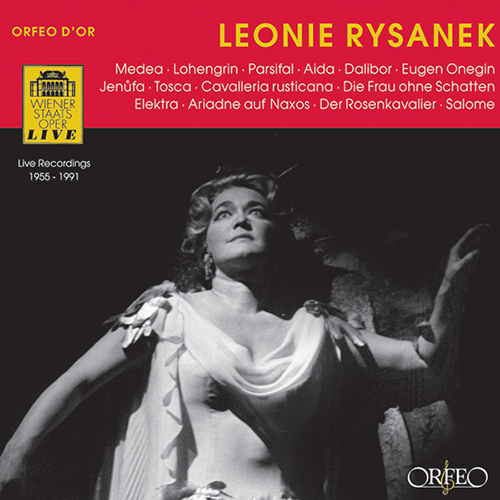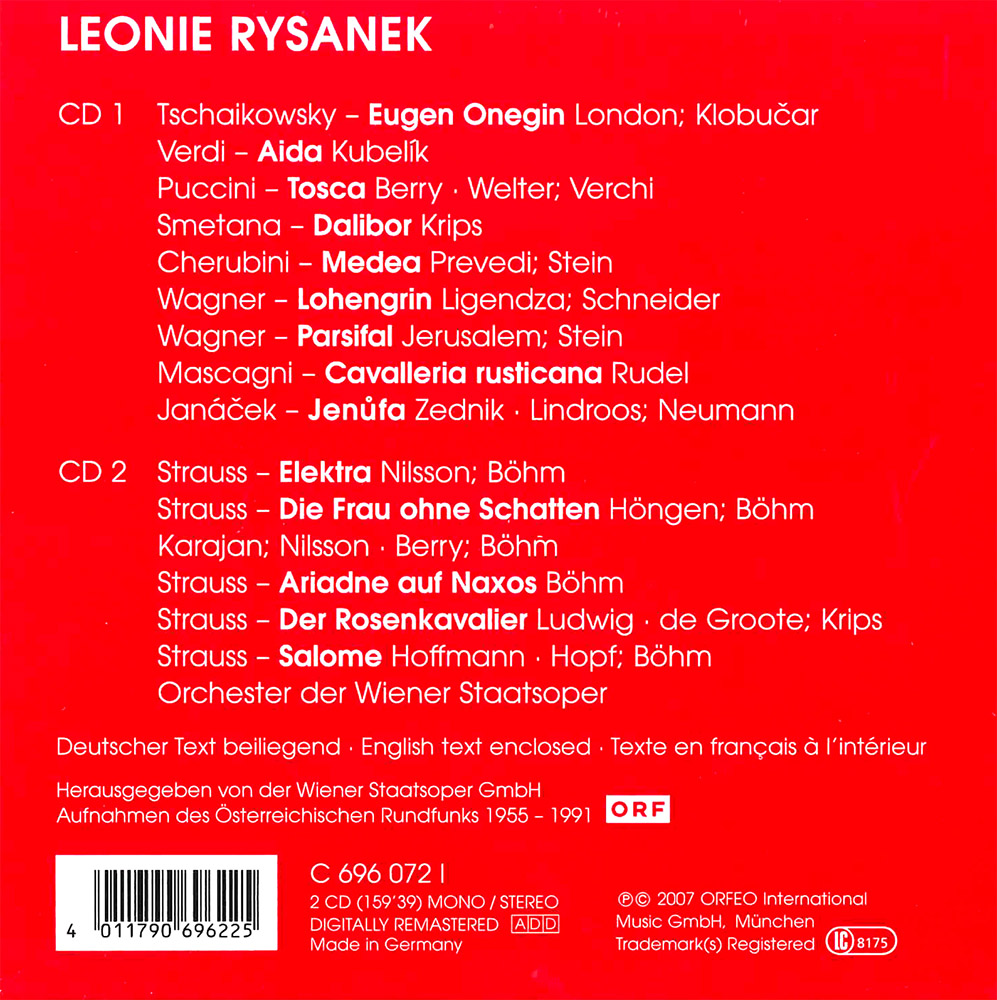Composer(s):
Conductor(s):
Orchestra(s):
Artist(s):
Hoffmann, Grace; Prevedi, Bruno; Ligendza, Catarina; Welter, Ludwig; Groote, Hilde de; Beňačková, Gabriela; London, George; Hopf, Hans; Höngen, Elisabeth; Nilsson, Birgit; Zednik, Heinz; Ludwig, Christa; Lindroos, Peter; Jerusalem, Siegfried; Berry, Walter; Rysanek, Lotte; Lilowa, Margarita; Rysanek, Leonie
Genre(s):
Opera
Period(s):
20th Century; Classical (1750-1830); Romantic
Label:
Orfeo
Catalogue No:
C696072I
Barcode:
4011790696225
Release Date:
01/2007
Available Format(s):
CD
Leonie Rysanek
Tchaikovsky, Pyotr Il'yich
Eugene Onegin, Op. 24, Act III: O bang ist mir um's Herz (Sung in German)
Verdi, Giuseppe
Aida, Act 1: Als Sieger kehre heim! (Sung in German)
Puccini, Giacomo
Tosca, Act I: Mario?! Mario?! - Il pittor Cavaradossi?
Smetana, Bedřich
Dalibor, Act II: Ist es wahr? Oh, wie plotzlich (Sung in German)
Cherubini, Luigi
Medea (Medee), Act I: Recitative: Taci, Giason - Dei tuoi figli la madre (Sung in Italian)
Wagner, Richard
Lohengrin, Act II: Elsa! … Wer ruft? - Entweihte Gotter
Parsifal, Act II: Dies alles… hab' ich nun getraumt?
Mascagni, Pietro
Cavalleria rusticana: Voi lo sapete
Janáček, Leoš
Jenufa, JW I/4, Act II: Ja, in all den zwanzig Wochen (Sung in German)
Disc 2
Strauss, Richard
Die Frau ohne Schatten, Op. 65, TrV 234
Die Frau ohne Schatten, Op. 65, TrV 234, Act III: Aus unsern Taten steigt ein Gericht!
Die Frau ohne Schatten, Op. 65, TrV 234, Act III: Vater, bist du's?
Elektra, Op. 58, TrV 223, Act I: Ich kann nicht sitzen und ins Dunkel starren
Ariadne auf Naxos, Op. 60, TrV 228a, Es gibt ein Reich, wo alles rein ist
Der Rosenkavalier, Op. 59, TrV 227 (excerpts)
Salome, Op. 54, TrV 215: Scene 4: Ah! Du wolltest mich nicht deinen Mund kussen lassen, Jochanaan!
Total Playing Time: 02:38:21

















